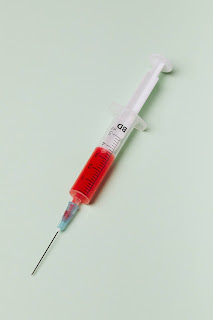How Touch Therapy can help those suffering from Dementia
Dementia is the loss of the ability to function cognitively in everyday life ,it is caused by not only one specific disease, but a combination of many ,with Alzheimer’s being the most common source. The disease normally affects older adults from their mid-60s onwards and can have devastating effects including memory loss, Anxiety and Depression, increased agitation, anger or aggression, disorientation, impaired judgement, incontinence, weight loss and difficulty with concentrating on daily tasks or following with conversations. It can be a very distressing and confusing time for both sufferers and their loved ones, as they try to come to terms with unpreventable changes that sadly become their new reality.
There is no known cure currently and the condition will often cause the mind and body to deteriorate over time, there are medicines available to help treat symptoms, but unfortunately the effects are often only temporary.
So how can Touch Therapy help and what benefits can it help to provide?
A slow and gentle non-judgemental therapeutic touch is a way to communicate without words, a universal language that can be used and understood to help promote peace of mind and improve the quality of life for those who are affected. Those receiving are assured that this is a time for them to be able to relax, with no expectations that they need to talk, remember any of the session, or make any decisions. It is simply a time for them to rest and unwind. A touch therapy session would ideally last for at least 10 to 40 minutes for it to be beneficial, but it has been proven that something as simple as a 5-minute hand or foot massage can help in bringing a sense of relief and tranquillity at this very difficult time.
Dementia causes a decline in cognitive abilities, when even familiar faces, simple conversations and tasks can seem overwhelming. Forgetfulness can lead to anger and frustration and feelings of confusion and disorientation with our surroundings which can also be very distressing. Focussed and varying styles of touch can help to increase our sense of awareness and our connection to a sense of reality once again.
Often as the condition progresses, sufferers are liable to suffer from emotional upset which can lead in the long-term to Anxiety and Depression due to impairment of cognitive ability, sleep disturbances and poor quality of life. Through touch, sufferers can feel both heard, comforted and understood. Choosing to stay present and being aware of what is being expressed both mentally and physically is a powerful and effective way to show support, understanding and acknowledgement.
In addition, touch can help to release stiffness in tight muscles and joints, increasing circulation whilst providing pleasure and relief from pain and discomfort.
As the mind and body begin to deteriorate, it is only natural to start feeling a variety of unsettling emotions such as frustration and fear which ultimately can cause anger issues and at times aggressive behaviour as a result. A gentle touch can be incredibly calming, helping to reassure the person that it is safe to express how they are feeling, therefore helping to redirect negative energy into a sense of grounding and inner connection.
As human beings we all crave to feel that nurturing touch that allows us to feel safe and cared for and this is never more apparent then with illness or disease as we become reliant on others for being responsible for our health and wellbeing. It is so easy for sufferers to feel increasingly isolated and abandoned if they do not get the support that they need.
Therapeutic touch that is always unconditional and never forced can provide invaluable skin on skin contact, whilst providing mental stimulation and social interaction through companionship, providing that sense of comfort, whilst providing individual emotional care and support.
It has been medically proven that applying therapeutic touch through human intervention can reduce agitated behaviour, enabling the care received as a result to be more effective and productive. Touch is a universal language to encourage positive behaviour, whilst encouraging feelings of safety and wellbeing and reducing the need for drug intervention.
It is so important that at these testing times we can put our own frustrations and sense of anguish aside as loved ones and caregivers, to support those who are suffering the most. To remember that despite the cruel consequences of this disease, the people who we love and care for still remain the same. They are just trapped within a situation in which they have no control, including the personality and behavioural changes that will inevitably occur, as their condition worsens over time.
Elizabeth Lock Holistic Therapist
www.yourcuddletherapy.co.uk heal@yourcuddletherapy.co.ukwww.yourinnerglow.co.uk heal@yourinnerglow.co.ukwww.yourtantrictouch.co.uk heal@yourtantrictouch.co.uk
www.yourcuddletherapy.co.uk heal@yourcuddletherapy.co.ukwww.yourinnerglow.co.uk heal@yourinnerglow.co.ukwww.yourtantrictouch.co.uk heal@yourtantrictouch.co.uk




Comments
Post a Comment